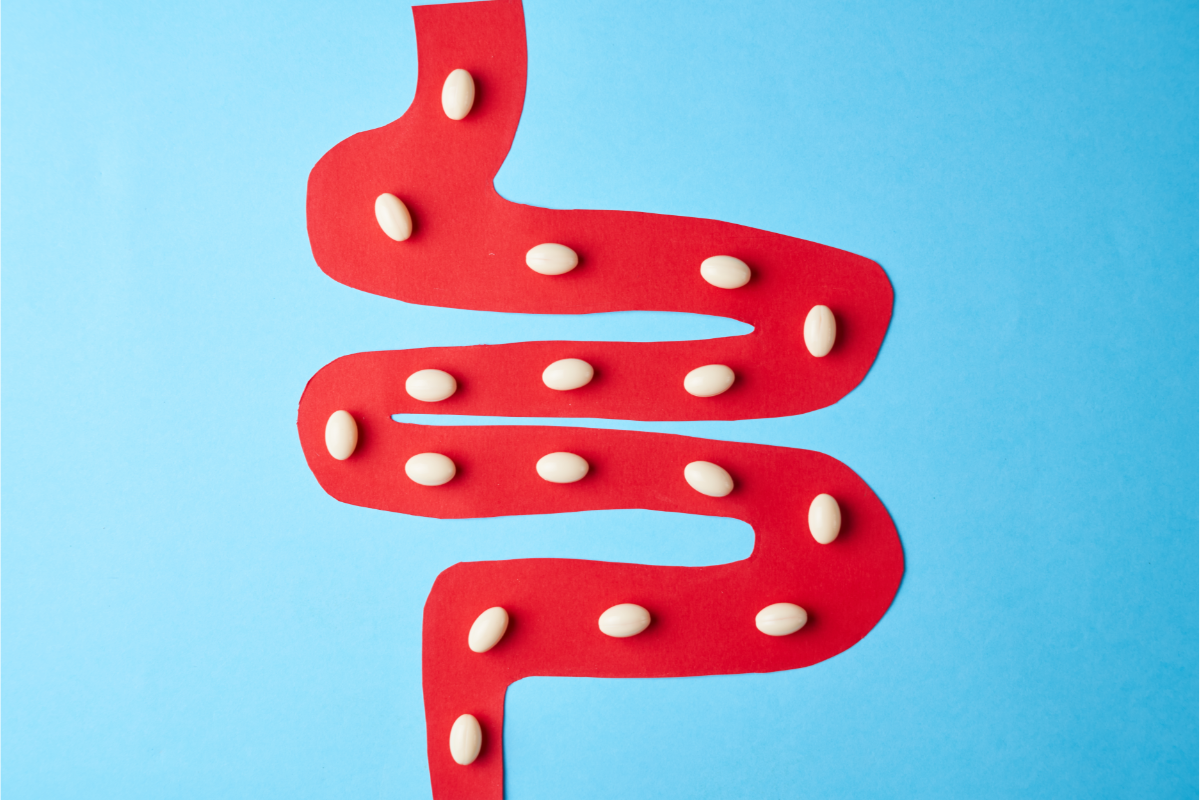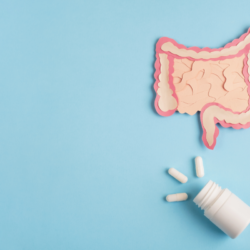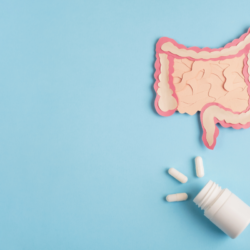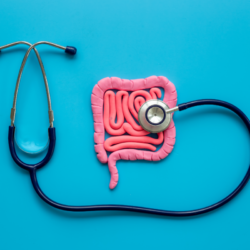In the microscopic world of our bodies, a powerful trio works behind the scenes to maintain our health and well-being. They’re called probiotics, prebiotics and postbiotics – key elements of what we call ‘biotics’. So what are they, and how exactly do they work? This fascinating journey into the world of biotics promises to enlighten you.
What are probiotics?
Probiotics are living micro-organisms which, when consumed in adequate quantities, confer a health benefit on the host. These beneficial bacteria play a key role in maintaining digestive health, protection against harmful pathogens pathogens and strengthening our immune system.
The role of prebiotics
Prebiotics are like fertiliser for the lush garden of our intestinal microbiota. These non-digestible fibres provide the essential nutrients for our probiotics to develop and thrive. Understanding how they work gives us a better grasp of the vital role they play in our health.
What are prebiotics?
Simply put, prebiotics are types of dietary fibre that our bodies cannot digest. They are found in a wide variety of foods, including fruit, vegetables, wholegrain cereals and legumes. These fibres pass through our digestive system to the intestine, where they serve as food for our probiotics.
Stimulating the growth of probiotics
One of the main roles of prebiotics is to stimulate the growth of probiotics, the beneficial bacteria that inhabit our intestines. By feeding on prebiotics, probiotics can multiply and thrive, contributing to a healthy and diverse intestinal microbiota.
Influence on intestinal health
By nourishing our probiotics, prebiotics help maintain optimal intestinal health. A well-nourished and diverse intestinal microbiota can promote better digestion, strengthen the intestinal barrier and even modulate the immune system.
Impact on general health
Beyond their impact on intestinal health, prebiotics can also have beneficial effects on our general health. Studies have shown that a diet rich in prebiotics can help manage weight, regulate blood sugar levels and improve heart health.
Incorporating prebiotics into the diet
It’s quite simple to incorporate more prebiotics into our diet. Foods rich in prebiotics include bananas, garlic, onions, leeks, asparagus, artichokes , legumes and whole grains. A varied and balanced diet will help ensure an adequate intake of prebiotics.
The advent of postbiotics
Although probiotics and prebiotics have long been the main players on the intestinal health scene, a third player is now emerging with a vengeance: postbiotics. These metabolic products, derived from the activity of probiotics, are revolutionising our understanding of the intestinal microbiota and its impact on our health.
What are postbiotics?
Postbiotics are compounds produced by probiotic bacteria during their metabolic processes. They include organic acids, enzymes, peptides, proteins and other bioactive compounds. These substances are the result of the probiotics’ metabolic activity and can have a beneficial effect on the body.
The impact of postbiotics on health
Postbiotics have a number of beneficial functions for our bodies. They can modulate the immune system, improving our ability to fight infection. They can also help to regulate inflammation a key factor in many chronic diseases. In addition, some postbiotics can have a beneficial effect on intestinal health, by promoting the growth of good bacteria and inhibiting the growth of harmful bacteria.
Research into postbiotics
Because of their promising effects, postbiotics are attracting growing interest from researchers. Preliminary studies have shown that these compounds could be useful in treating a range of conditions, from gastrointestinal disorders to autoimmune diseases. However, research is still in its infancy and many aspects of postbiotics remain to be explored.
Incorporating postbiotics into our diet
At present, postbiotics are incorporated into our diet mainly through the consumption of fermented products such as kefir or yoghurt. However, as research progresses, we should see the emergence of postbiotic supplements that could enable us to benefit from the health benefits of these compounds in a more targeted way.
Health benefits of biotics
When we think of digestion, we usually think of enzymes and stomach acids. However, our digestive system is also a veritable bacterial ecosystem, in which probiotics play a crucial role.
1 Probiotics, the architects of our intestinal flora
Probiotics are living micro-organisms which, when consumed in adequate quantities, provide health benefits. These ‘friendly’ bacteria help to balance our intestinal flora a key element in our digestive well-being.
Fighting inflammation
In addition to their action on the balance of intestinal flora, probiotics have a significant impact on inflammation. They can help reduce intestinal inflammation, thereby contributing to the prevention and treatment of diseases such as Crohn’s disease and ulcerative colitis.
Optimised digestion
By acting on both the balance of intestinal flora and inflammation, probiotics help to improve digestion. They help break down food and absorb nutrients, making digestion more efficient and comfortable.
2 Prebiotics: Feed your beneficial bacteria
If probiotics are the ‘good’ bacteria of our digestive system, prebiotics are their favourite food. They are essential for the good health of our intestinal flora.
Prebiotics, fuel for probiotics
Prebiotics are non-digestible fibres that we consume in our diet. They stimulate the growth and activity of probiotic bacteria in the colon, helping to maintain a balanced intestinal ecosystem.
Regulating weight and appetite
Prebiotics can also play a role in regulating our weight and appetite. By nourishing good intestinal bacteria, they encourage the production of certain compounds that help regulate the sensation of satiety.
3 Postbiotics: The newcomers on the scene
Finally, postbiotics, products derived from the metabolic activity of probiotics, are increasingly recognised for their potential health benefits.
Modulation of the immune system
Postbiotics can help modulate our immune system. They help strengthen our defence against infection and may play a role in preventing certain diseases.
Improved intestinal health
Postbiotics can also improve our intestinal health. They help to maintain the balance of intestinal flora and can have an anti-inflammatory effect, contributing to optimal digestion.
Reduced inflammation
Like probiotics, postbiotics can help reduce inflammation in the body. This could have important implications for the prevention and treatment of various inflammatory diseases.
Pharmacomicrobiomics or the impact of drugs on the intestinal flora
Pharmacomicrobiomics is an emerging discipline that studies the interaction between the intestinal microbiome and drugs. This field takes on a new dimension when considered in relation to probiotics, postbiotics and prebiotics. Indeed, these three components of the microbiome can play a decisive role in the way drugs are metabolised by our bodies.
Probiotics, by modulating the composition of the intestinal flora, can influence the metabolism of drugs and, consequently, their efficacy and bioavailability. Postbiotics, on the other hand, may have anti-inflammatory or immunomodulatory effects that could potentially interact with the effects of certain drugs. Prebiotics, by nourishing certain beneficial bacteria, can also change the composition of the microbiome, which in turn can affect drug metabolism.
Thus, pharmacomicrobiomics is not limited to the study of interactions between drugs and the microbiome in general, but must also take into account these key players: probiotics, postbiotics and prebiotics. Their presence or absence can be a critical factor in the effectiveness of a drug treatment, underlining the importance of a more personalised and integrated approach to healthcare.
Can probiotics replace faecal transplantation?
The link between probiotics and faecal transplantation is a subject of great interest in the field of intestinal health. Fecal transplantation, a method of balancing the intestinal microbiota, has striking similarities with the benefits of probiotics. Probiotics, beneficial micro-organisms, also help to maintain a healthy microbiota. Scientific studies show that introducing probiotics into our diet can generate microbial diversity similar to that of a successful faecal transplant. Although different in their application, these two approaches share a common objective: to improve intestinal health and, by extension, overall health. Probiotics could therefore serve as a complement or even an alternative to faecal transplantation in certain cases. However, more clinical research is needed to clarify the optimum conditions for use of each method.
FAQ
What is the difference between probiotics, prebiotics and postbiotics?
Probiotics are live bacteria which, when consumed in sufficient quantities, have a beneficial effect on our health. Prebiotics are fibres that serve as food for these bacteria. Postbiotics are the end products of probiotic metabolism.
How can I incorporate probiotics, prebiotics and postbiotics into my diet?
Probiotics are generally found in fermented foods such as yoghurt, kefir, sauerkraut, etc. Prebiotics are found in many fruits and vegetables, particularly bananas, garlic, onions, leeks, asparagus and artichokes. Postbiotics are still relatively new and are mainly available in supplement form.





